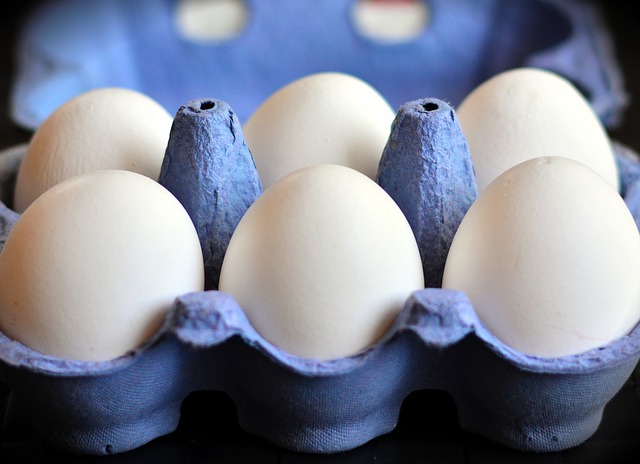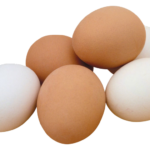Many people rear kienyeji chicken in rural areas for purposes of generating eggs. As you would expect, many people rear chicken in these places on a free-range arrangement. In a case where you have two or a few chickens, you may not expect to have so much of a concern about egg quality or health. However, if you are rearing kienyeji chicken for commercial egg production, this is a must.

Ideally, the improved KARI Kroiler breed is one of the best egg layers, producing 220-280 eggs a year. This is comparable to the 220-280 eggs a year from the Rainbow breed. Nevertheless, you can target between 200-220 eggs a year from Kroiler, 220-260 eggs a year from Tanzania-sourced SASSO breed.
For commercial egg production purposes, you want to maximize egg production by ensuring chickens do not lay eggs of poor quality. Some egg defects include soft-shelled eggs, thin-shelled eggs, shell-less eggs, pimples on eggs, pin-holes, odd-shaped eggs, eggs with calcium deposits, internal blood spots in the eggs, meat spots inside the eggs, watery whites inside eggs, calcium-coated eggs, and body checked eggs.
The first step is to understand these defects. However, here are tips on how you can ensure good and high-quality eggs from your kienyeji chicken.
Tips to Ensure Best Egg Quality From Kienyeji Chicken
- Feed the best quality food
- Free-range as much as possible
- Keep the nest off of insects, germs, and diseases
1. Feed the best quality food
Chicken feeds affect egg quality probably more than any other factor besides the flock age. There are many feed options for layers but the basic general requirement is that the feeds should contain 15-18% proteins and about 3% calcium.
Nevertheless, several nutrients affect the overall quality of eggs and you need to consider other nutrients in addition to protein and calcium. Phosphorus and Vitamin D also affect eggshell quality in addition to Calcium although Calcium is most important here. The eggshell is affected by other nutrients like vitamin B12, folic acid, chlorine, fat, and fatty acid constituents in kienyeji chicken feed.
You can also use clay in feed to control the manure quality and cleanliness of eggs. The same can be achieved by varying fibers. Ensure to also feed chicken with adequate water. Internal egg health may not be a huge concern for many farmers since the defects may go largely unnoticed and most are minor. However, things like vitamin K, chlorine, ochratoxin, and vitamin A in feeds can help reduce blood spots in eggs. Vitamin E boosts the strength of the vitelline membrane in eggs.
For this reason, you can provide calcium supplements by feeding crushed oyster shells or crushed eggshells to the chicken. This is in addition to feeding the kienyeji chicken with greens.
2. Free-range as much as possible
Research shows that free-range eggs have lesser cholesterol than other eggs. Free-range reared chicken do supplement commercial feeds with greens, insects, and other materials. This helps them to get most or all of the vital nutrients needed to constitute strong and quality eggs. However, this is not possible for limited space rearing, in which case you can use greens and insects to supplement the feeds.
3. Keep the nest off of insects, germs, and diseases
Unhealthy chickens do not produce healthy or quality eggs depending on the diseases in question. Diseases or conditions like salmonellosis, mycoplasmosis, infectious laryngotracheitis, stress, and internal parasites can decrease production. However, more severely, conditions like the egg drop syndrome may cause the production of totally unsellable eggs that are pale, soft-shelled and shell-less eggs.
Other diseases that can cause defective eggs infectious bronchitis which causes misshapen eggs. Stress can also cause oddly shaped eggs as can defective shell glands. Other problems include oviduct inflammation, diseases that cause tiny miniature eggs, etc.
Make sure to follow vaccination, nest treatment, disinfection, and other health programs to avoid these. Then watch out for toxin presence in feed or around nests like paints, poisonous plants, etc. also, seek the advice of a veterinarian.
BUY 1 GET 3
ORDER YOUR KIENYEJI CHICKEN FARMING MANUAL TODAY - GET KIENYEJI CHICKEN HOUSING MANUAL AND POULTRY FEED FORMULATION FOR FREE.
KSH 500 ($4.45) ONLY
FOR M-PESA CONTACT PAYMONEY.ONLINE@GMAIL.COM

